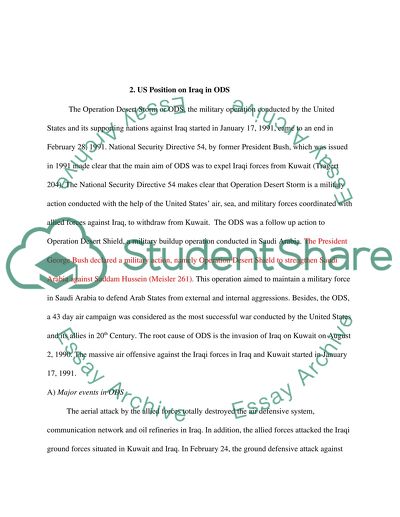Cite this document
(“The position of the USA in the first Iraq War (Operation Desert Essay”, n.d.)
The position of the USA in the first Iraq War (Operation Desert Essay. Retrieved from https://studentshare.org/miscellaneous/1559213-the-position-of-the-usa-in-the-first-iraq-war-operation-desert-stormods-an-example-of-multilateral-coalition-building
The position of the USA in the first Iraq War (Operation Desert Essay. Retrieved from https://studentshare.org/miscellaneous/1559213-the-position-of-the-usa-in-the-first-iraq-war-operation-desert-stormods-an-example-of-multilateral-coalition-building
(The Position of the USA in the First Iraq War (Operation Desert Essay)
The Position of the USA in the First Iraq War (Operation Desert Essay. https://studentshare.org/miscellaneous/1559213-the-position-of-the-usa-in-the-first-iraq-war-operation-desert-stormods-an-example-of-multilateral-coalition-building.
The Position of the USA in the First Iraq War (Operation Desert Essay. https://studentshare.org/miscellaneous/1559213-the-position-of-the-usa-in-the-first-iraq-war-operation-desert-stormods-an-example-of-multilateral-coalition-building.
“The Position of the USA in the First Iraq War (Operation Desert Essay”, n.d. https://studentshare.org/miscellaneous/1559213-the-position-of-the-usa-in-the-first-iraq-war-operation-desert-stormods-an-example-of-multilateral-coalition-building.


